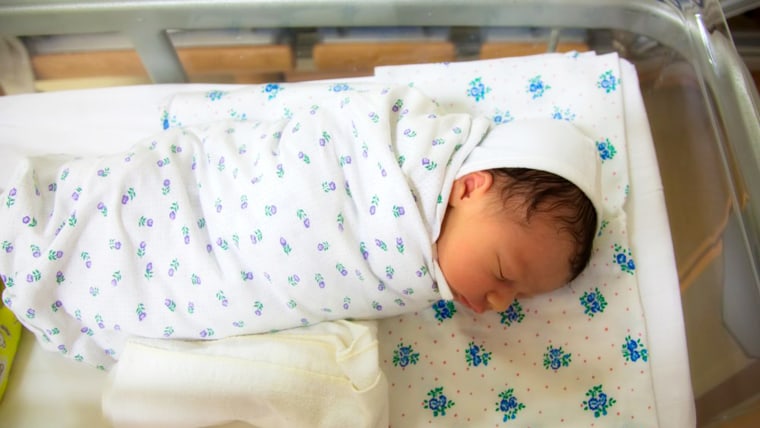If you're a mom-to-be (or know one), a growing trend in hospitals across the country could change how your newborn is cared for after delivery.
Babies traditionally go to the hospital nursery after they're born, but these days, many hospitals are doing away with those facilities. It's known as the "baby friendly" initiative, and it may be coming to a hospital near you.
When it comes to the hours and days after having a baby, some new moms want their babies close by in the hospital room, never leaving their sight. Others would rather have a nurse take the baby to the nursery for a while so they can get some rest.
RELATED: Can you say 'wardrobe malfunction'? Dad's funny outfit for baby goes viral
But now some hospitals are pushing back. Doctors and administrators have been telling new mothers that unless it's urgent, the baby must stay with them. The main objective of this new protocol is to encourage moms to breastfeed and ultimately bond more with their newborns by staying together, in the same room, around the clock.
There are currently 355 designated "baby friendly" hospitals in the U.S., and by the end of next year there will be an estimated 530 of them. That's about 1 in 4 births in America.
Massachusetts General Hospital in Boston is among them.

"The research is abundant, and it shows the benefits of keeping a mom and baby together in a room really creates an environment that's the healthiest for the baby and the healthiest for the mothers," said Lori Pugsley, newborn family units nursing director at the hospital.
Some parents love the idea. "We always have her here, and anything that she needs she has right here," one new dad told TODAY.
RELATED: Ellie Kemper opens up about pregnancy, 'Kimmy Schmidt' and comedy on Sunday TODAY
And some ... well, they're not so into it.
"I asked the nurse if she would take him to the nursery for a few hours so my husband and I could get some sleep," one such parent, Christiane Boezio, recounted to TODAY. "And she said no. That it was policy that the baby stay in the room."
The duties of taking care of her new son, Oliver, and the toddler she already had at home, left her understandably exhausted. After 48 hours of labor and no sleep, she argued she needed sleep for reasons of "mental sanity."
RELATED: Photographer mom documents her own delivery in stunning collection of photos
Amy Tuteur, a Harvard-trained OB-GYN and the author of "Push Back: Guilt in the Age of Natural Parenting," believes the practice is helpful for breastfeeding advocates, but not for babies. According to her, new moms should have the option of taking some time away from their child to get some shut-eye.
"If the mother wants to send the baby to the nursery, then she should have the choice to do that," she said. "Absolutely women should have support in breastfeeding. But if a woman decides that it's not for her, it's not for us to tell her she has to do it."
She's not alone in that thinking. The American Congress of Obstetricians and Gynecologists told TODAY they're in favor of breastfeeding as an organization. But they also believe that "all providers should respect and support a woman's informed decision."
For parents-to-be worried about the changes, there are a few things you can do to prepare yourself:
- If you can, visit the facility and take a tour of its amenities. Learn how the nurses plan to care for both you and your newborn before the birth happens.
- It helps to have someone there with you to help you with the child, should you be expected to take care of him or her on your own. This is especially true if the baby is going to have to stay with you 100 percent of the time, around the clock.
- Lastly, even if you've already had a child, don't assume your experience will be exactly the same.